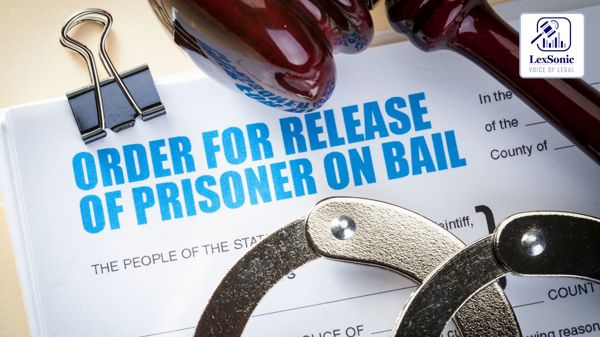In a significant development in the ongoing criminal proceedings, the Bombay High Court recently granted bail to Laxman Rama Pawar, also known as Laxman Mahakal, who was among the 11 accused facing serious charges under the Indian Penal Code (IPC), the Arms Act, and the Maharashtra Control of Organized Crime Act (MCOCA). The case, involving multiple charges of assault and organized crime, had kept Pawar in custody for nearly four years, awaiting trial.
Background of the Case:
The applicant, Laxman Pawar, along with other accused individuals, was charged in connection with the assault on the first informant on December 19, 2019. The assault took place after the first informant had finished worshiping at the Sai Temple in Vikhroli and was seated in the temple office. One of the assailants, identified as Sagar, opened fire with a gun, injuring the informant. However, the informant, with the help of his son, managed to apprehend the shooter on the spot. The authorities arrested the other suspects involved, and further investigations revealed the case to be connected with an organized crime syndicate.

Following this, the Mumbai Police invoked provisions of the Maharashtra Control of Organized Crime Act (MCOCA) after discovering the involvement of a larger criminal network. The prosecution argued that Pawar was part of this syndicate, providing shelter and logistical support to the primary shooter. However, Pawar’s legal counsel argued that there was no direct evidence linking him to the crime or to the organized crime syndicate led by Prasad Pujari, who was said to be the mastermind.
Legal Arguments and Defense:
The applicant’s defense team, led by Mr. Deshpande, presented several critical points in their argument for bail. They contended that Pawar had been falsely implicated and that there was no evidence to support his involvement in the crime. The First Information Report (FIR) initially registered against an unknown assailant did not include Pawar’s name, and he was never identified in a test identification parade. The only evidence the prosecution relied upon was a confessional statement made by a co-accused, Umesh Shetty, which had little corroborative value. Furthermore, Pawar’s counsel argued that there was no material to establish his membership in the organized crime syndicate or prove his role as an abettor in the attack.
Additionally, the defense pointed out that while the MCOCA provisions had been invoked, there were no prior charge-sheets filed against Pawar that could establish his continuous involvement in unlawful activities or links to the syndicate's leader, Prasad Pujari.
Prosecution's Argument:
On the other hand, the prosecution, represented by Mr. Palkar, argued strongly against granting bail. They contended that Pawar had acted as a facilitator to the crime by providing shelter to the shooter and assisting in the logistics of the attack. The prosecution highlighted the confessional statement of Umesh Shetty, which indicated that Pawar had shown the shooter the target and provided him with a weapon. Furthermore, the prosecution stressed that Pawar’s role as an abettor made him liable under the provisions of the MCOCA.
The prosecution also referred to the fact that the organized crime syndicate, under Prasad Pujari, was responsible for various criminal activities, and Pawar's involvement in this network was crucial in planning and executing the crime.
Court's Decision:
After considering the arguments from both sides, the Bombay High Court ultimately granted bail to Laxman Pawar. The Court acknowledged that while the applicant's role as an abettor was evident from the co-accused's confessional statement, there was insufficient direct evidence linking him to the criminal activities of Prasad Pujari’s syndicate. The Court also took into account that Pawar had already spent over four years in custody without a trial, a significant period that could not be overlooked.
The Court noted that despite the provisions of MCOCA, which generally impose stringent conditions for bail, the applicant’s prolonged incarceration, coupled with the lack of strong evidence, warranted the granting of bail. The Court stressed the importance of ensuring the right to a speedy trial under Article 21 of the Indian Constitution, emphasizing that the delay in proceedings could not justify the indefinite detention of an accused without a fair trial.
Bail Conditions:
As part of the bail conditions, the Court directed Pawar to execute a personal recognizance bond of Rs. 1,00,000, along with one or two sureties of the same amount. Additionally, Pawar was instructed to report to the Vikhroli Police Station every Sunday between 3:00 p.m. and 5:00 p.m. until the trial concludes. The Court also imposed restrictions on Pawar's interaction with witnesses, ordering him not to induce, threaten, or promise any person to dissuade them from providing evidence.
Conclusion:
The Bombay High Court’s decision to grant bail to Laxman Pawar has attracted attention due to the serious charges involved and the application of stringent provisions of the MCOCA. The Court’s ruling reinforces the principle that even in cases involving organized crime syndicates, the right to a fair and speedy trial must be protected, and that prolonged detention without trial can be a violation of constitutional rights.
The case highlights the complexity of balancing the need for justice in organized crime cases with the individual rights of accused persons. While the legal proceedings continue, this decision may have broader implications for how similar cases are handled in the future.
Indian Penal Code, 1860
Arms Act, 1959

